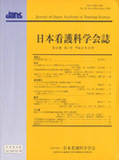Japanese
English
- 販売していません
- Abstract 文献概要
- 参考文献 Reference
要旨
目的:看護師のワーク・エンゲージメント(以下,WE)に関する研究の方法論を包括的に整理し,今後の研究の方向性について示唆を得ることを目的とする.
方法:CINAHL, MEDLINE, PubMed, PsycINFO,医学中央雑誌を用いて,nurse, engagement, work engagement,看護師,エンゲージメント,ワーク・エンゲージメントの用語で検索した.2004~2011年11月までに発表された20文献を対象とした.
結果:調査対象は病院勤務の看護職が大半であった.また,さまざまな病院・部署を同時に扱うことによる影響が考えられ,方法論上の課題が明らかとなった.WEの測定尺度は4つあり,近年はJob Demands-Resources modelを概念枠組みとしたUtrecht Work Engagement Scaleを用いた研究が多かった.看護師のWEの向上は,看護師の身体症状・うつ症状の軽減に限らず,組織の効率性やケアの質の向上にも寄与することが明らかとなった.
結論:今後は,所属機関や部署ごとの特性を考慮した変数設定や解析方法を取り入れること,看護師のWEの向上を視野に入れた具体的な実践や介入が及ぼす効果を科学的に検証することの必要性が示唆された.
Abstract
Objectives: Work engagement is an important aspect of organizational efforts that are made to retain nurses and to improve the quality of care. This literature review aims to clarify the research methodology with regard to the work engagement of nurses and to consider the research challenges.
Methods: Electronic databases for the Health Sciences and Health Administration (CINAHL, MEDLINE, PubMed, Japanese Central Review of Medicine) and Psychology (PsycINFO) were systematically explored with the following key words: nurse, engagement, and work engagement. Twenty English articles published from 2004 to November 2011 were reviewed.
Results: Most studies focused on nurses in hospital settings. The findings revealed that methodological issue was to juggle various hospitals and units at once. There were four scales measured work engagement. Recently, researchers used Utrecht Work Engagement Scale with the conceptual framework of Job Demands-Resources model. Improving nurses' work engagement made a contribution not only to nurses' physical and mental health outcomes but also to a quality of care and organizational efficiency.
Conclusion: The following are future challenges: need for further research regarding variables considered features of settings and units, application of further analytical methods. Thereafter, the causal association between antecedents, work engagement, and outcomes should be clarified by studying longitudinal and interventional designs.
Copyright © 2012, Japan Academy of Nursing Science. All rights reserved.


